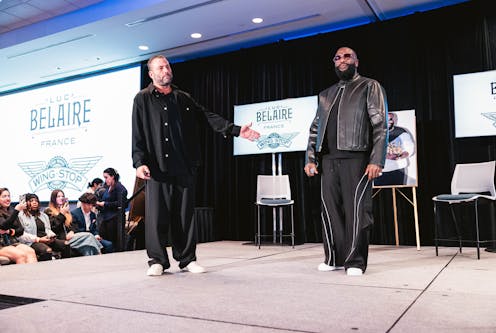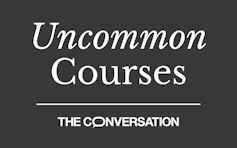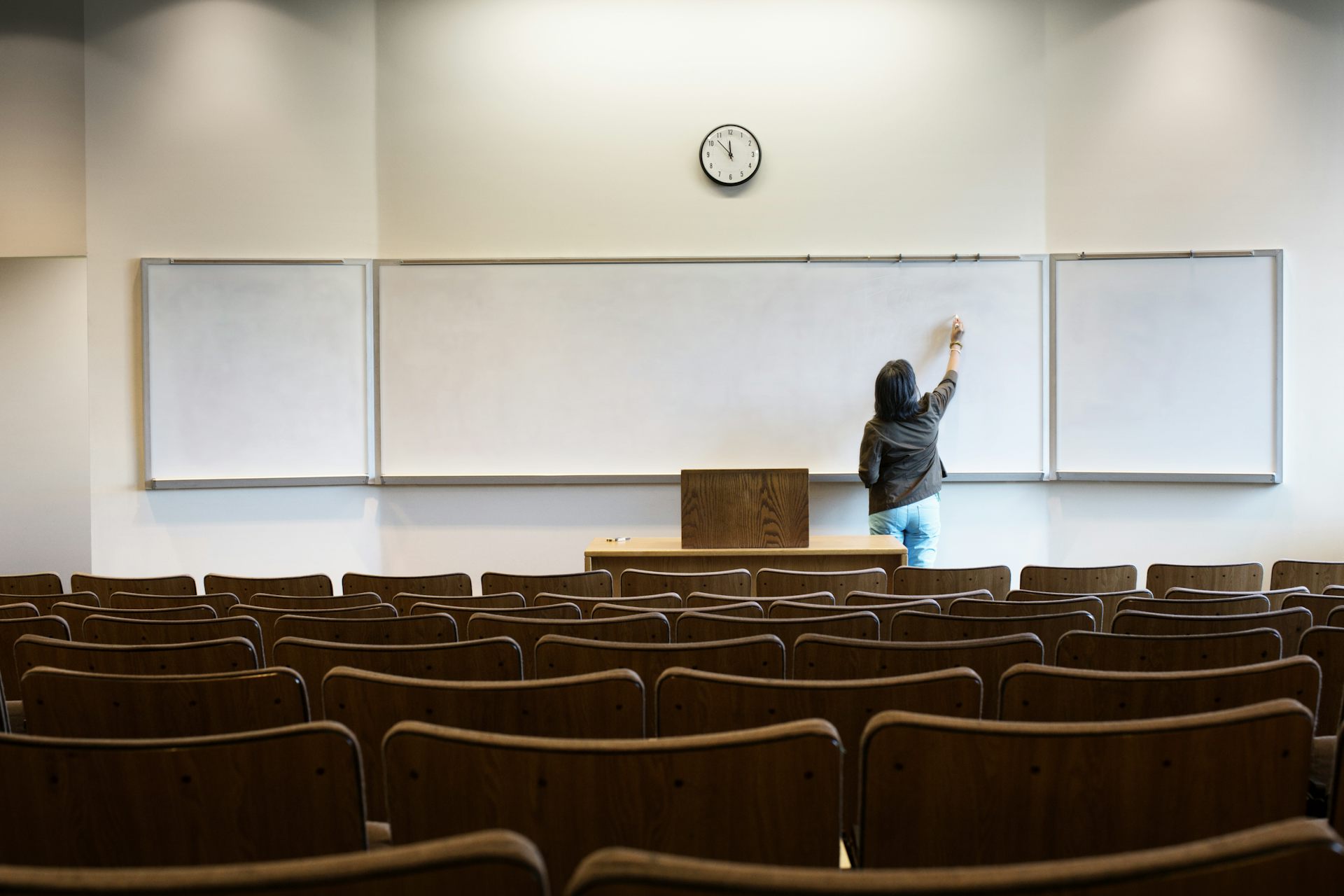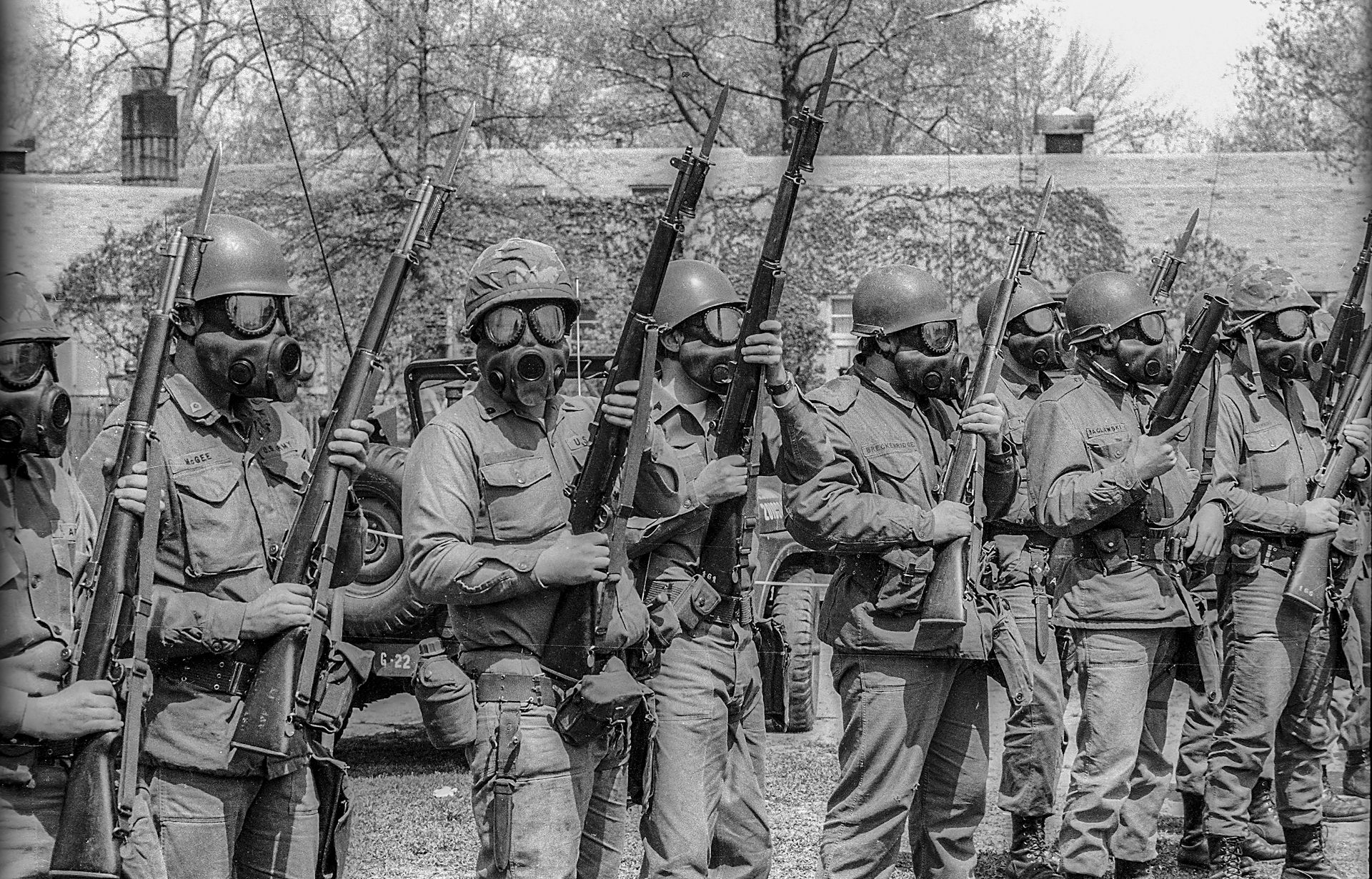Celebrities routinely drop in on this Florida university’s hospitality course
A Miami nightclub owner and restaurateur has been adding star power to his class on entrepreneurship and hospitality.


Uncommon Courses is an occasional series from The Conversation U.S. highlighting unconventional approaches to teaching.
Title of course:
“The David Grutman Experience”
What prompted the idea for the course?
The first time David Grutman, a Miami businessman who runs a growing hospitality empire, told me he wanted to teach a class, I thought he meant he wanted to do a single guest lecture.
He had already been guest-speaking in the nightclub management class for several semesters, so turning one session over to David didn’t seem like such a huge leap.
When David clarified that he wanted to teach an entire course on entrepreneurship – drawing from his own experiences – I thought it would be a great opportunity.
Naively, I started sharing tips on how to run the class, based on Florida International University’s academic framework. David did not follow a single thing I said. His unique approach ended up paying off.
The course he teaches – which features celebrities such as DJ Khaled, Pharrell, Drake, Bad Bunny, David Beckham, Jason Momoa, Rick Ross, Serena Williams, Kendall Jenner and Hailey Bieber – consistently gets the highest positive feedback among all of our courses. Students pay attention intently for almost three hours per class. Faculty members co-teach the course, as I did initially.
David’s guest speakers always bring a sense of practicality and realism to his classes. For instance, when he talked about being 100% committed to his business and taking risks, his guest speaker Rick Ross echoed that sentiment and said he makes strategic decisions when he invests in something he likes, such as his investment in Wing Stop.
Similarly, Bad Bunny told students he cannot work on a project without feeling the passion and identifying with it. Actor Jason Momoa said “hospitality is giving of my heart. I’m self-made, and I had to do it all on my own,” which is similar to David’s own journey as an entrepreneur who started as a bartender.
When David promoted the class on his Instagram, we got over 100 registrations within the first two hours. At that time, most of our in-person classes had no more than 50 students. His last class in spring of 2024 had 400-plus students – so many that we had to use a ballroom as his classroom.
What does the course explore?
David focuses on the cornerstones of success in hospitality: authenticity, relationships, taking it personally, the pros and cons of first-generation versus second-generation establishments, picking a niche, work-life balance and much more. He also goes in depth and shares his business successes as well as failures.
What’s a critical lesson from the course?
The strongest and most lasting lesson is probably about tenacity and not giving up.
For instance, David shared stories of his successes as much as he shared stories of his failures. He recounted how he was convinced that a trio of restaurants he opened in the iconic Firestone tire shop and garage on Miami Beach failed, and he had to make the tough decision to close them shortly after they opened. But it did not deter him from opening his next restaurant in Coconut Grove, The Key Club, followed by his successful venture with rapper Bad Bunny, Gekko.
In each of those cases, David shared what he learned from the failures and how he avoided the same mistakes going forward. He also talked about knowing when the right partner at the right time will lead to success, such as his longtime friend Noah Tepperberg, founder of Tao Group, when he opened their first joint venture, Casadonna.
Despite his own humble start as a bartender, he never allowed anyone to tell him he couldn’t make it. He has shared the story about how his first employer, Jeffrey Soffer, turned him down when he wanted to open his first restaurant, Komodo Miami, because Soffer said, “You are not a restaurant guy, you are a nightclub guy.” Today, Komodo is one of the highest-grossing restaurants in the nation, and both Komodo and Papi Steak are primary dining attractions at the new Fontainebleau Las Vegas.
What will the course prepare students to do?
David emphasizes the importance of humility and learning from others, showcasing the need to prioritize the organization’s well-being over personal ego, even at the cost of facing negative publicity, such as when he had to close the three restaurants at Firestone. This lesson underlined the importance of collaboration and constructive feedback in entrepreneurship.
Developing an ecosystem is another major point, with David stressing the value of building his businesses so that guests will want to party with him in his nightclubs, eat at his restaurants and sleep in his hotels. He emphasized aligning with personal values to establish credibility and attract partnerships, which fosters community engagement and ecosystem growth.
Finally, the course emphasizes the importance of embedding the brand’s purpose in every aspect of the operation, from hiring to partnerships and authentically embodying the mission and values of the business.
Michael Cheng does not work for, consult, own shares in or receive funding from any company or organization that would benefit from this article, and has disclosed no relevant affiliations beyond their academic appointment.
Read These Next
The greatest risk of AI in higher education isn’t cheating – it’s the erosion of learning itself
Automating knowledge production and teaching weakens the ecosystem of students and scholars that sustains…
‘Learning to be humble meant taming my need to stand out from the group’ – a humility scholar explai
Humility is a virtue that many people admire but far fewer practice. A scholar describes how a professional…
Why the ‘Streets of Minneapolis’ have echoed with public support – unlike the campus of Kent State i
In 1970, National Guard troops killed four protesters at Kent State University. In 2026, federal agents…






